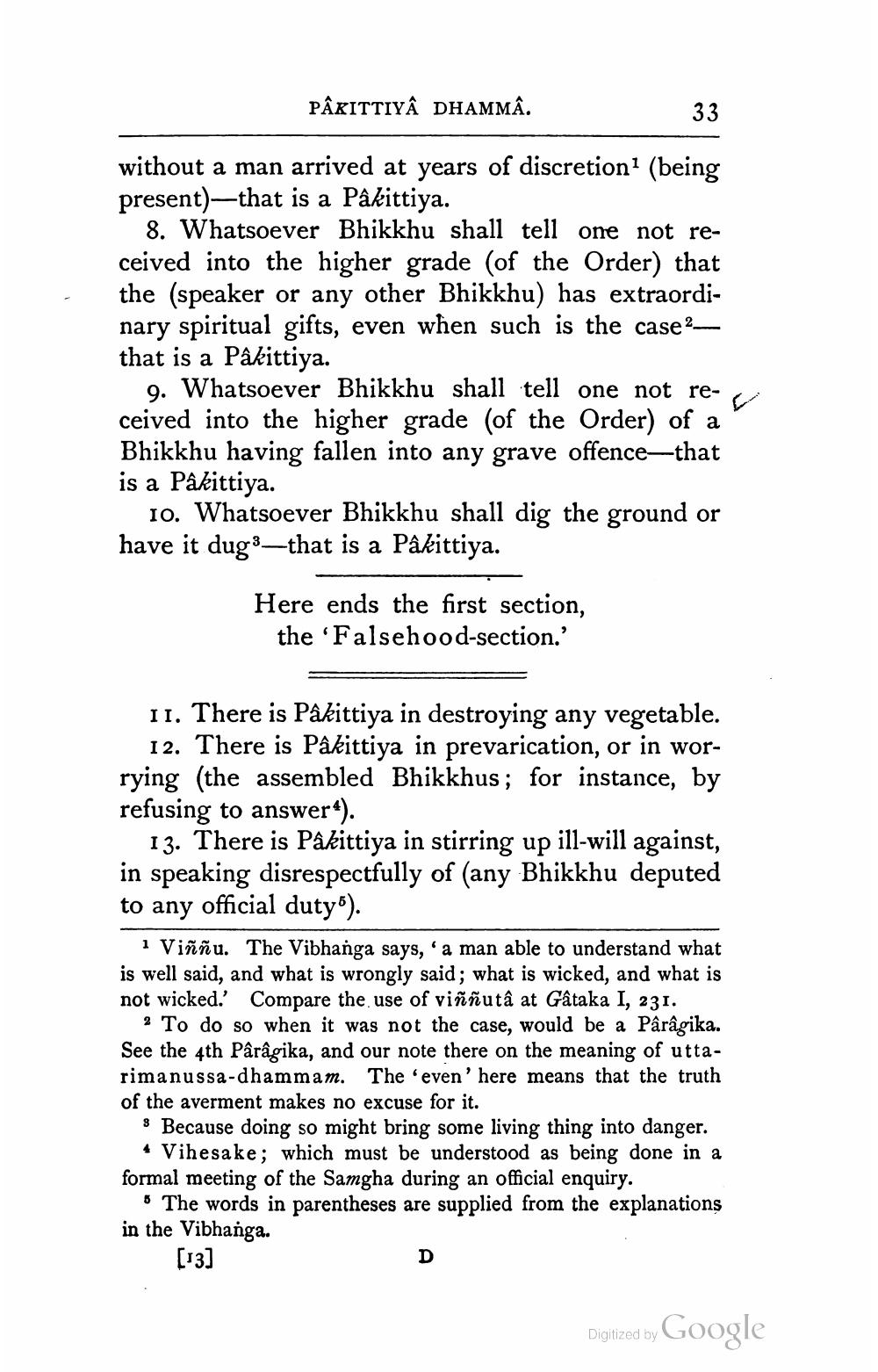________________
PAKITTIYA DHAMMA.
33
without a man arrived at years of discretion1 (being present)—that is a Pâkittiya.
8. Whatsoever Bhikkhu shall tell one not received into the higher grade (of the Order) that the (speaker or any other Bhikkhu) has extraordinary spiritual gifts, even when such is the case2that is a Pâkittiya.
9. Whatsoever Bhikkhu shall tell one not received into the higher grade (of the Order) of a Bhikkhu having fallen into any grave offence—that is a Pâkittiya.
10. Whatsoever Bhikkhu shall dig the ground or have it dug3-that is a Pâkittiya.
Here ends the first section, the 'Falsehood-section.'
II. There is Pâkittiya in destroying any vegetable. 12. There is Pâkittiya in prevarication, or in worrying (the assembled Bhikkhus; for instance, by refusing to answer1).
13. There is Pâkittiya in stirring up ill-will against, in speaking disrespectfully of (any Bhikkhu deputed to any official duty).
1 Viññu. The Vibhanga says, ' a man able to understand what is well said, and what is wrongly said; what is wicked, and what is not wicked.' Compare the use of viññutâ at Gâtaka I, 231.
2 To do so when it was not the case, would be a Pârâgika. See the 4th Pârâgika, and our note there on the meaning of uttarimanussa-dhammam. The 'even' here means that the truth of the averment makes no excuse for it.
3 Because doing so might bring some living thing into danger. Vihesake; which must be understood as being done in a formal meeting of the Samgha during an official enquiry.
The words in parentheses are supplied from the explanations in the Vibhanga.
[13]
D
Digitized by Google




